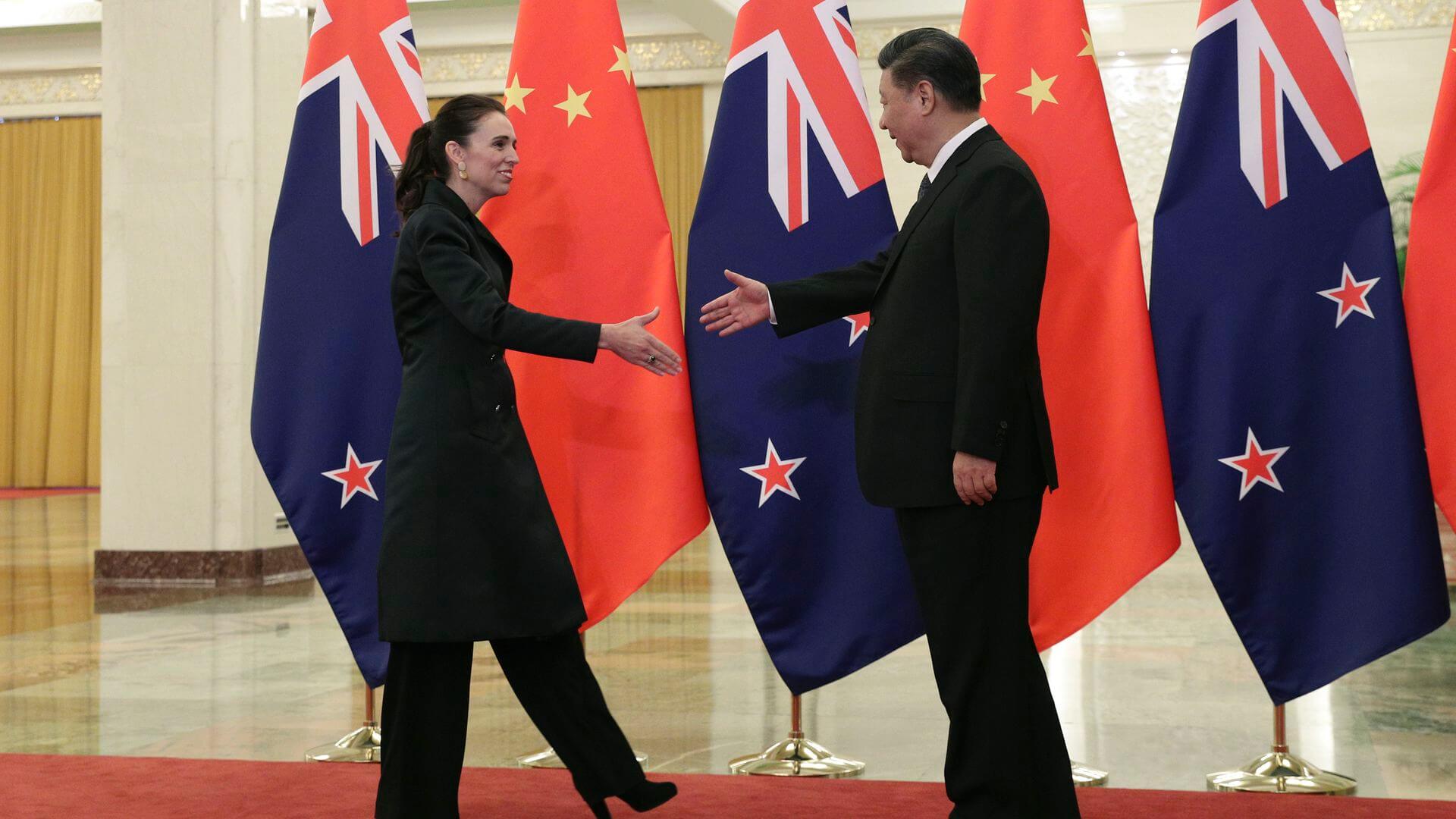In her keynote address at the China Business Summit in Auckland this morning, New Zealand Prime Minister Jacinda Ardern said that differences between New Zealand’s and China’s values and interests are “becoming harder to reconcile” as China’s role in the world evolves.
“It will not have escaped the attention of anyone here that as China’s role in the world grows and changes, the differences between our systems—and the interests and values that shape those systems—are becoming harder to reconcile… This is a challenge that we, and many other countries across the Indo-Pacific region, but also in Europe and other regions, are also grappling with,” Ardern said. While the PM noted that “there are some things on which China and New Zealand do not, cannot, and will not agree,” she added that these differences need not necessarily derail their relationship. “It is simply a reality,” she added.
The PM also spoke of how she has lodged protests with Beijing regarding the human rights situation of Uyghurs in Xinjiang and China’s growing aggression in Hong Kong in the past. Her statements come as New Zealand’s Parliament is set to debate a motion on Tuesday proposed by the right-wing ACT party to declare the situation in Xinjiang as a genocide. In this regard, the PM also expressed hope that China will see “in its own core interests to act in the world in ways that are consistent with its responsibilities as a growing power, including as a permanent member of the UN Security Council.”
Speaking after Ardern, China’s ambassador to New Zealand, Wu Xi, told the summit that Xinjiang and Hong Kong issues were China’s internal issues. “We hope that the New Zealand side could hold an objective and a just position, abide by international law and not interfere in China’s internal affairs so as to maintain the sound development of our bilateral relations,” she said in her speech.
Arden’s recent critical comments are in contrast to the more careful approach that New Zealand has employed in the past, which has allowed for its continued positive relations with China. Last month, New Zealand’s Foreign Minister (FM), Nanaia Mahuta, stated the country’s desire to maintain the Five Eyes alliance with the United States (US), the United Kingdom (UK), Australia, and Canada as an intelligence-sharing group and not use it as a means to place pressure on China. She remarked, “We are uncomfortable with expanding the remit of the Five Eyes. We would much rather prefer to look for multilateral opportunities to express our interests on a number of issues.”
Nevertheless, while Auckland has co-signed a number of joint statements with Five Eyes members on some matters related to Hong Kong and Xinjiang, it has consciously chosen to remain uninvolved in other issues. In March, New Zealand refused to sign a joint statement by its Five Eyes partners and ten other countries who came together to condemn a report by the World Health Organization that said that COVID-19 likely originated from bats, thereby dismissing the theory that it had leaked from a lab. At the time, FM Mahuta said New Zealand would “wait until our experts have finished analysing the report” before making a comment. New Zealand also refused to co-sign another joint statement on mass arrests of pro-democracy activists in Hong Kong back in January. It is also the only Five Eyes member to not yet ban the use of Huawei equipment in its 5G network.
Similar to her most recent remarks, Ardern in the past has noted that these simmering diplomatic tensions do not have a bearing on the two countries’ economic relationship, which she has said remains in “good shape”.
NZ PM Ardern Says China’s Divergent Interests and Values “Becoming Harder to Reconcile”
PM Jacinda Ardern said that New Zealand’s differences with China don’t entirely define their bilateral ties, but conceded that Beijing’s divergent interests are “becoming harder to reconcile”.
May 3, 2021

SOURCE: KENZABURO FUKUHARA - POOL via GETTY
